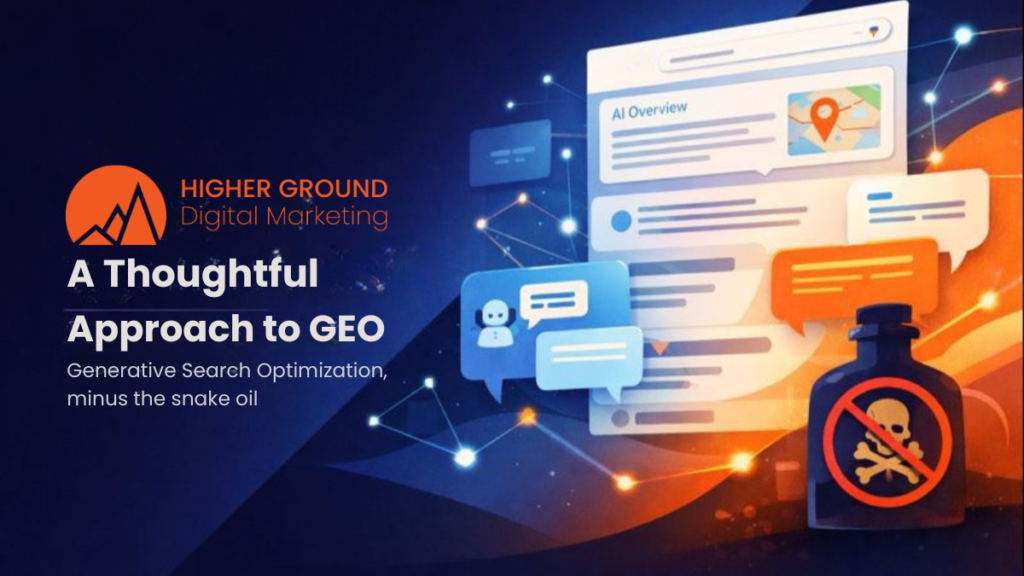Introduction
SEO. Three letters. Endless confusion. Somehow, everyone knows someone who “does SEO.”
Search Engine Optimization is often defined as “how to get found on Google.” But ask five marketers what SEO is, and you’ll likely get five different answers.
You’ve probably heard “SEO is dead.” (Spoiler alert: It’s not—it’s more important than ever.)
And now, there’s even more alphabet soup: GEO (Generative Engine Optimization), LLMO (Large Language Model Optimization), AIO (Answer Engine Optimization), and countless others popping up thanks to AI tools like ChatGPT, Perplexity, and Gemini.
What Is SEO, Really?
Rand Fishkin of SparkToro makes a compelling point:
“Search Engine Optimization = get higher rankings on Google, Yahoo!, Bing, maybe a bit of DuckDuckGo and AOL.
Search Everywhere Optimization = influence audiences in all the places they go to consume content about your topic.”
— Rand Fishkin, SparkToro
In today’s digital landscape, Google is still king—but it’s no longer the only player. People search for businesses on TikTok, YouTube, Yelp, Reddit, and yes, even AI tools like ChatGPT and Claude. This shift is why some now prefer to call it Search Everywhere Optimization.
At its core, SEO is about providing clarity—about your brand, your offerings, your values—wherever your audience is looking.
SEO isn’t just one thing. It’s a blend of technical practices, strategic messaging, and creative storytelling.
It involves:
- Make sure your website functions properly.
- Ensuring your product pages speak to the right audience.
- Removing things like JavaScript bloat that may slow your site.
- Matching your messaging to user intent.
SEO is a toolkit that includes site speed, content structure, local optimization, link building, and more. That’s why so many businesses find it overwhelming—and why expert guidance is often critical.
Why Is SEO a Big Deal?
If your business isn’t showing up when and where customers are searching, you might as well not exist online.
Why SEO Matters:
- Local visibility: According to BrightLocal, 80% of U.S. consumers search online for a local business each week, and 32% do so daily.
- Accuracy matters: 62% of consumers say they’d avoid a business if they found incorrect information online.
Especially for multi-location businesses, maintaining correct data across platforms (Google, Yelp, Bing, Apple Maps, etc.) is crucial, and it’s all part of SEO.





